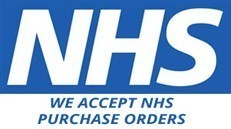Emergency Preparedness for older adults
...part of the extended info series on How to prepare your Personal Emergency Plan | this page is also accessed via bit.ly/SeniorPreparedness
Emergency Preparedness for older adults
Emergency Preparedness is not just for the young, especially when it involves specific health and medical needs. Older adults can easily prepare for all types of emergencies and disasters with a little thoughtful planning and coordination with carers, family, friends and neighbours ahead of time. Emergencies or Disasters can strike quickly and without any warning. They can force you to leave your neighborhood or prevent you from leaving your home. Local emergency services may not be able to reach you right away. What would you do if basic services – water, gas, electricity, telephone – were cut off? Knowing what to do is vital! Whether you live independently, with family members or friends, now is the perfect time to develop or review your preparedness plan and put together the right Emergency Kits that include all the items necessary to meet your needs. |  | ||||||
| 1. ASSESS - Special Needs, Medication and Emergency Preparedness During an emergency or disaster, the medicines you depend on everyday will be crucial to your health and safety. With just a few simple steps you can make sure that your most important medical needs are met.
Basic steps for better preparedness:
3. STAY SAFE during an Emergency or Disaster
Many older adults can be an asset during a disaster. Having lived through six, seven or more decades, they have probably experienced more than one disaster. Their experience, wisdom and mental as well as emotional resilience can help others and provides reassurance and continuity to those that are frightened or depressed by events.
4. RECOVER
Tweet thank you for sharing! |
| ||||||
Select sources: - our Blog on this topic; UNISDR Prevention Web: Disasters can harm older adults long after storms have passed CDC Preparedness for older Adults and their Caregivers (USA); Age UK Preparing for bad weather; HPN Protecting and assisting Older People in Emergencies; Evacuation Guide for people with disabilities NFPA; HelpAge International: Older People in Emergencies; Age International Older People in Emergencies; DEC Older People in Emergencies; QUT-based Dementia Centre guide to cope with dementia during disasters | Which Emergency Kit is right for you? | ||||||
| If you find this content useful then join us for even more Emergency Preparedness on
|
| ||||||











